Abstract
A basic right of all handicapped persons is to live in the least restrictive environment possible. In this investigation, procedures were evaluated for teaching four institutionalized males with profound retardation necessary skills to increase their individual freedom of movement. Following baseline, a travel training program with a backward chaining format was implemented to teach each person to walk independently from his living area to school. Travel training included instructions, practice, praise, feedback, verbal reprimands, prompts, and edible reinforcers. Each resident began walking the entire distance to school independently during training and also began walking back to the living area, although the latter set of skills was not specifically trained. Following termination of the formal investigation, follow-up measures of 1 to 8 weeks showed the residents continued going to school independently. A survey of residential facilities in 43 states provided social validation for the seriousness of the problems associated with transporting seriously retarded persons to school. Also, time efficiency measures indicated that training independent travel resulted in reductions of staff time required in school transportation. Results were discussed in light of the potential contributions of behavior analysis in providing less restrictive environments for seriously handicapped persons.
Full text
PDF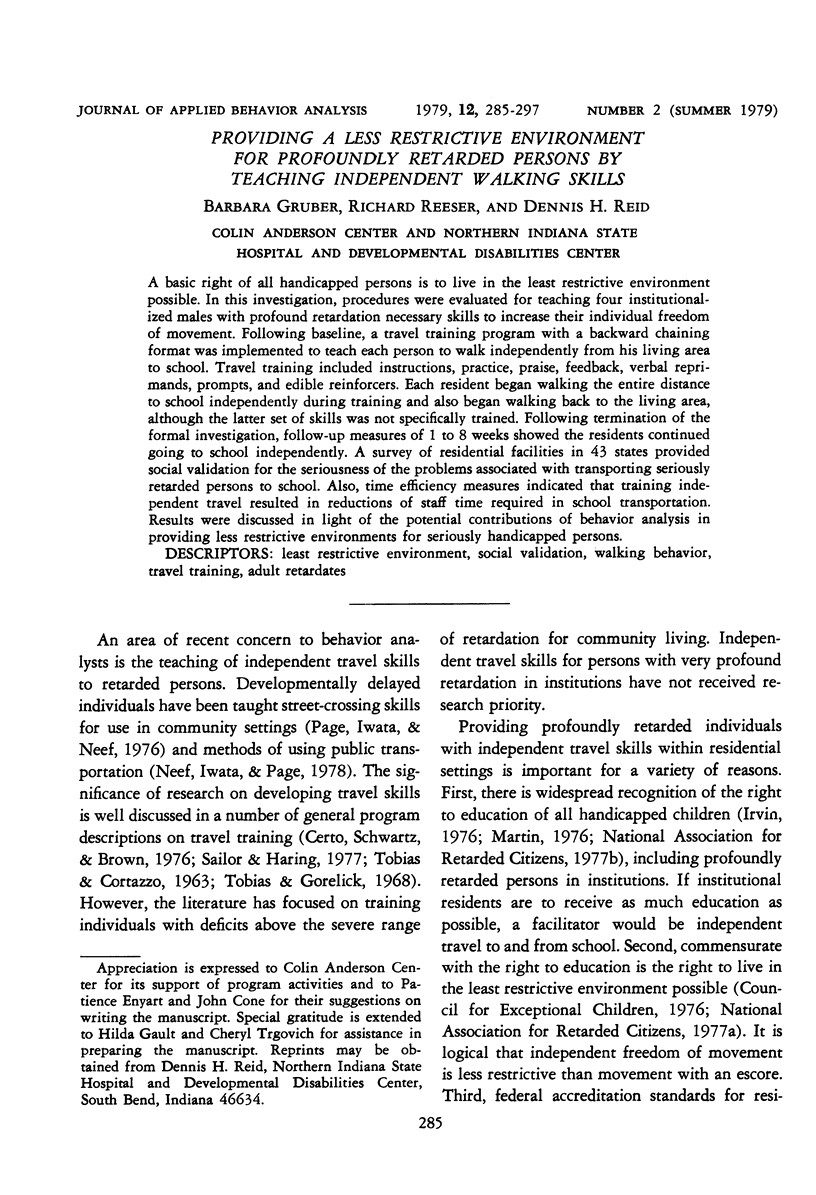
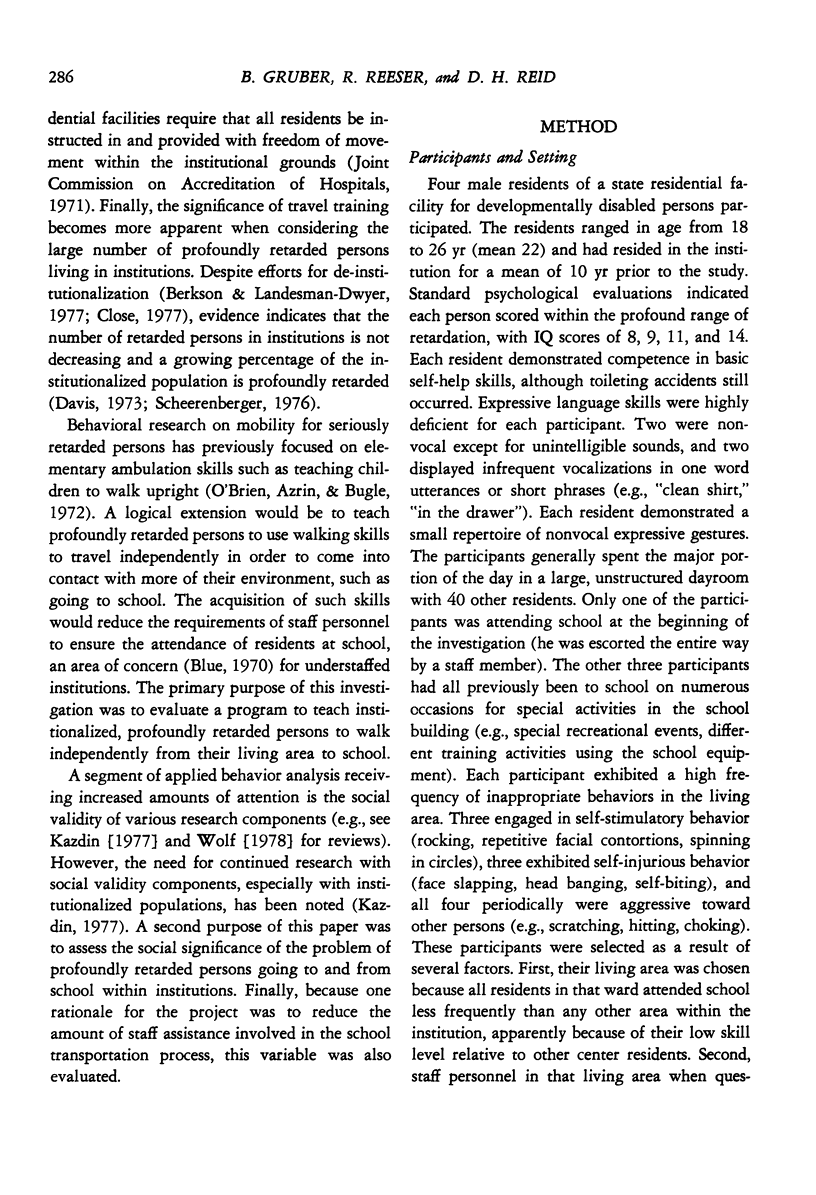
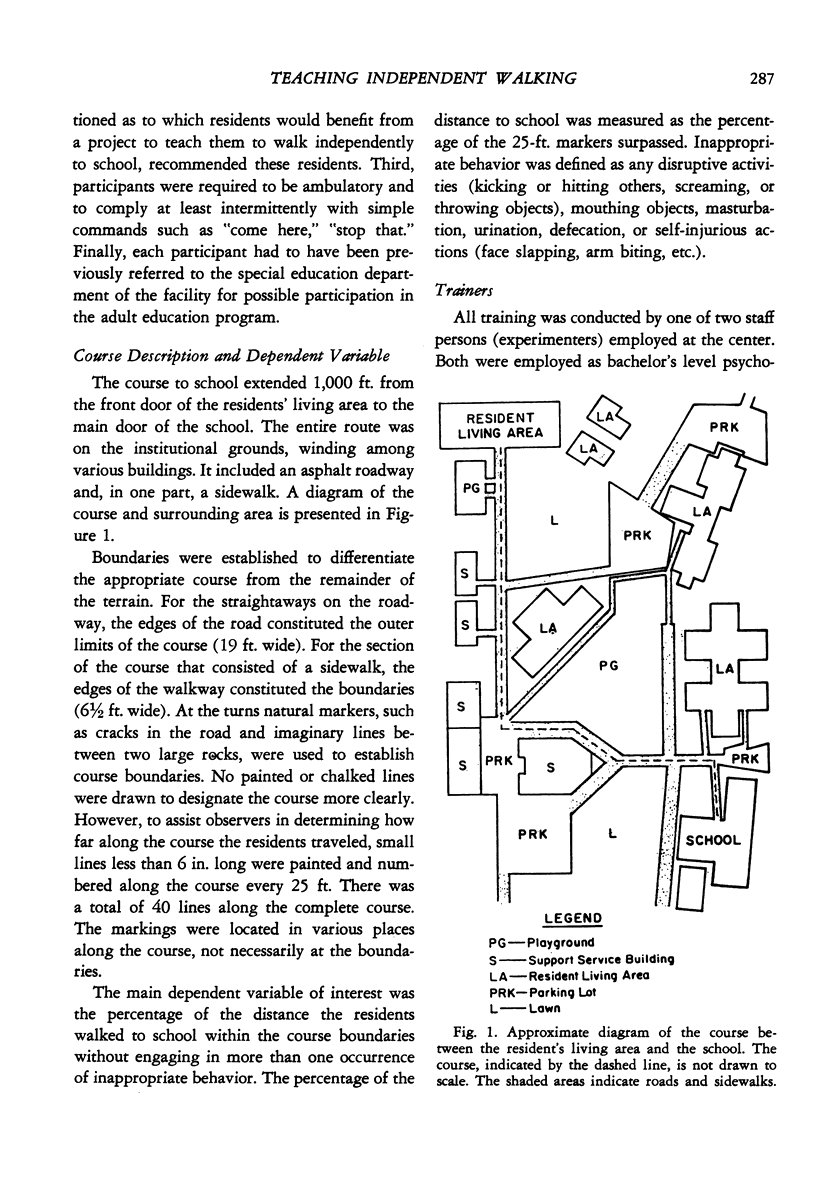
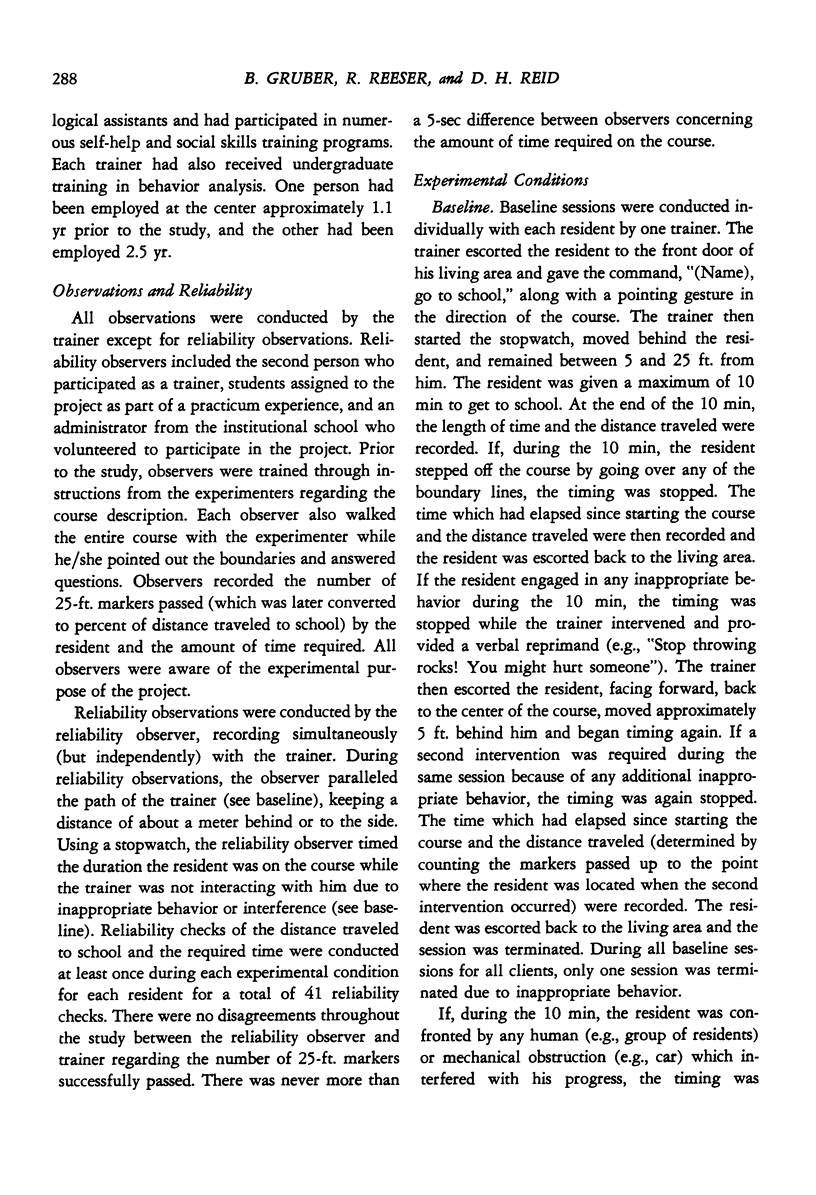
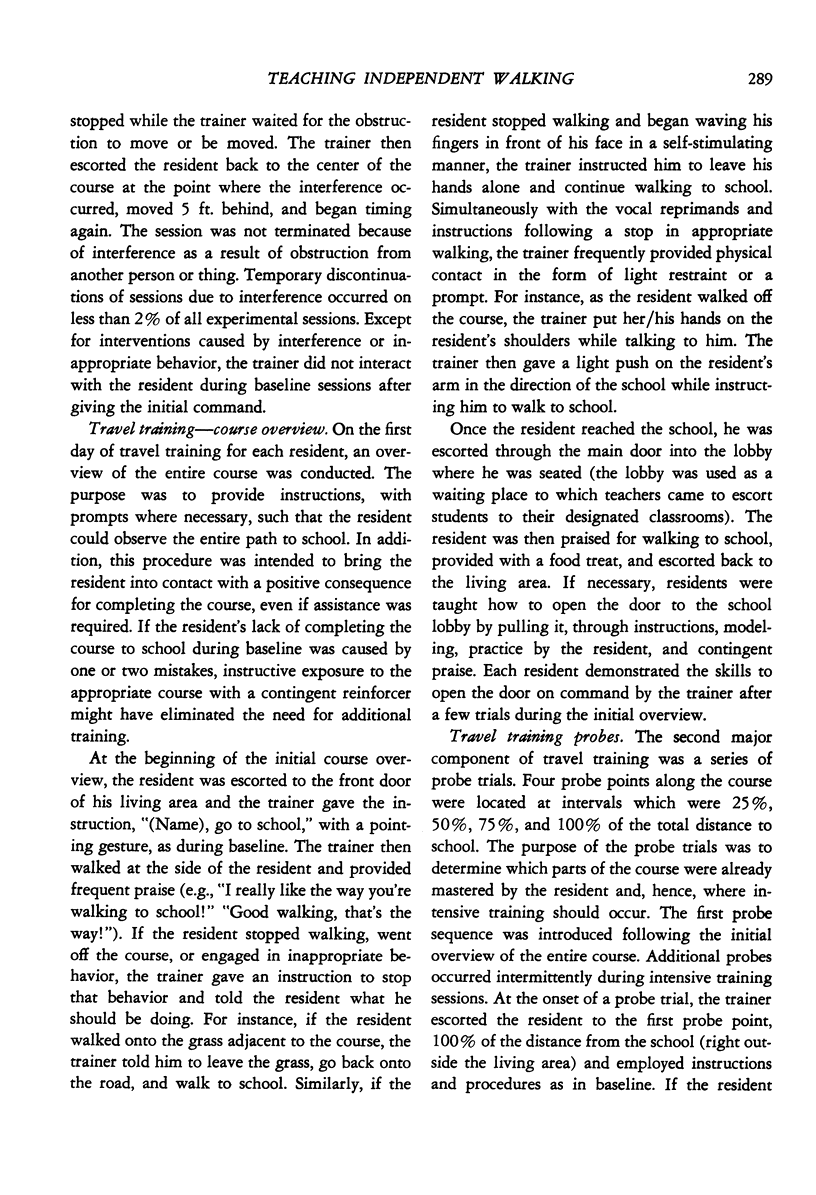
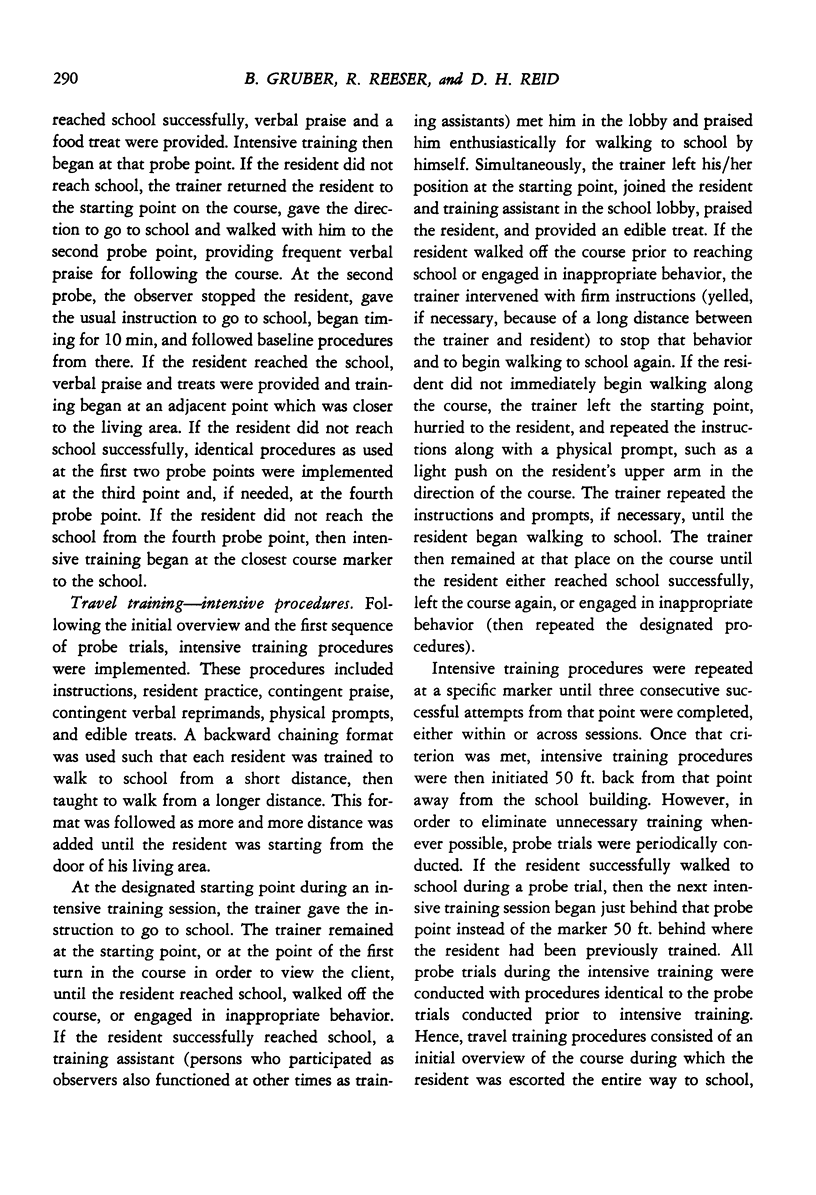
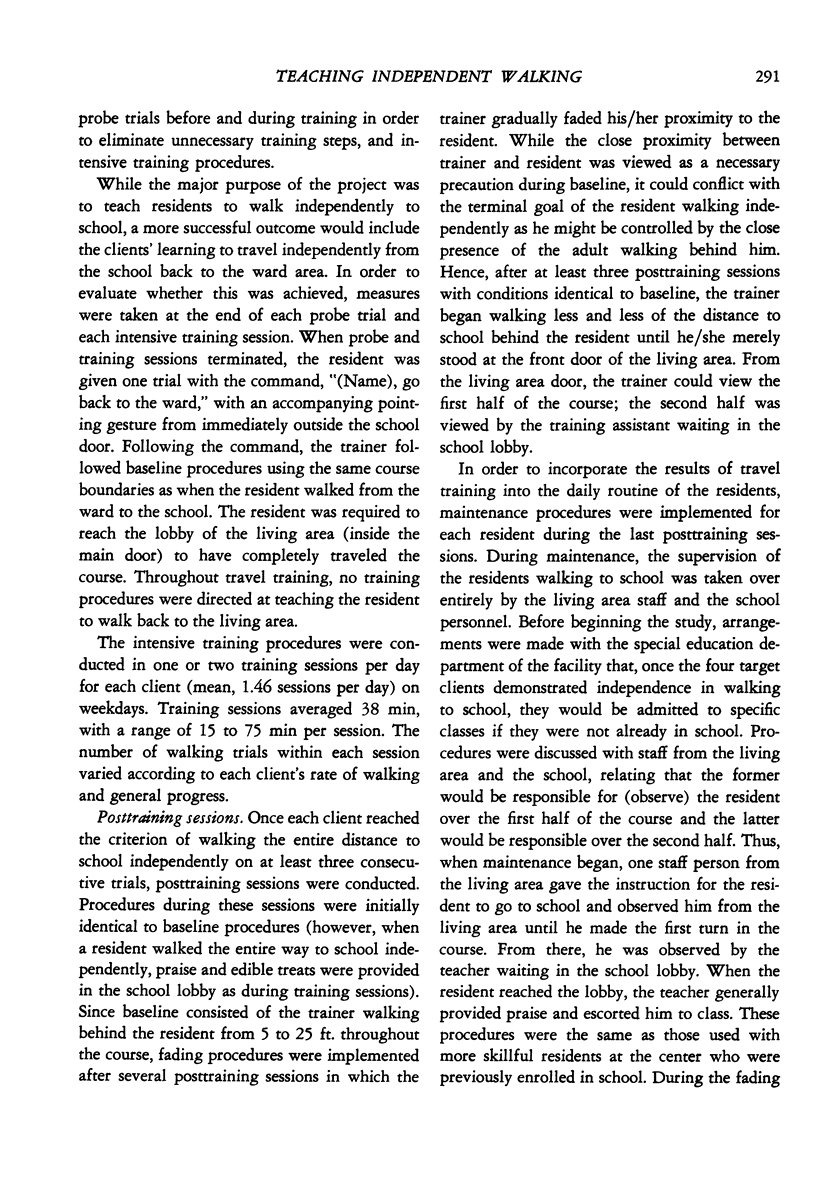
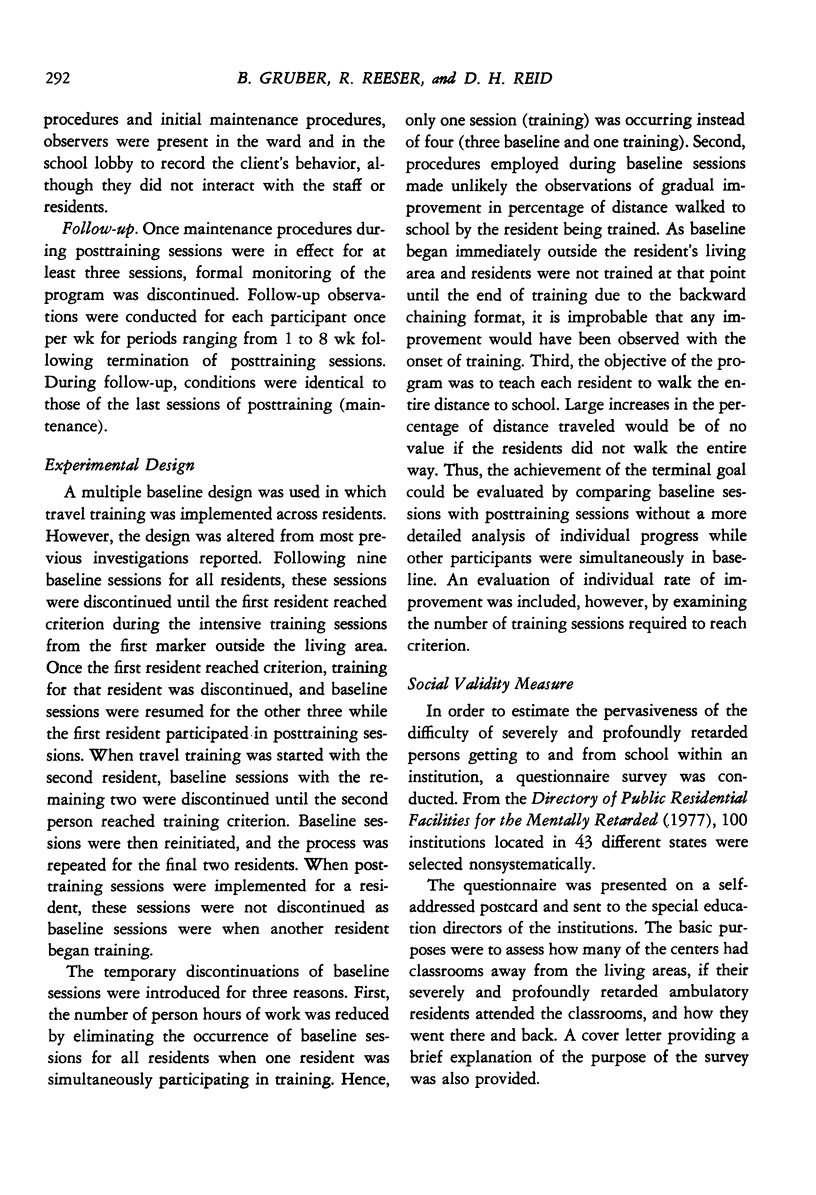
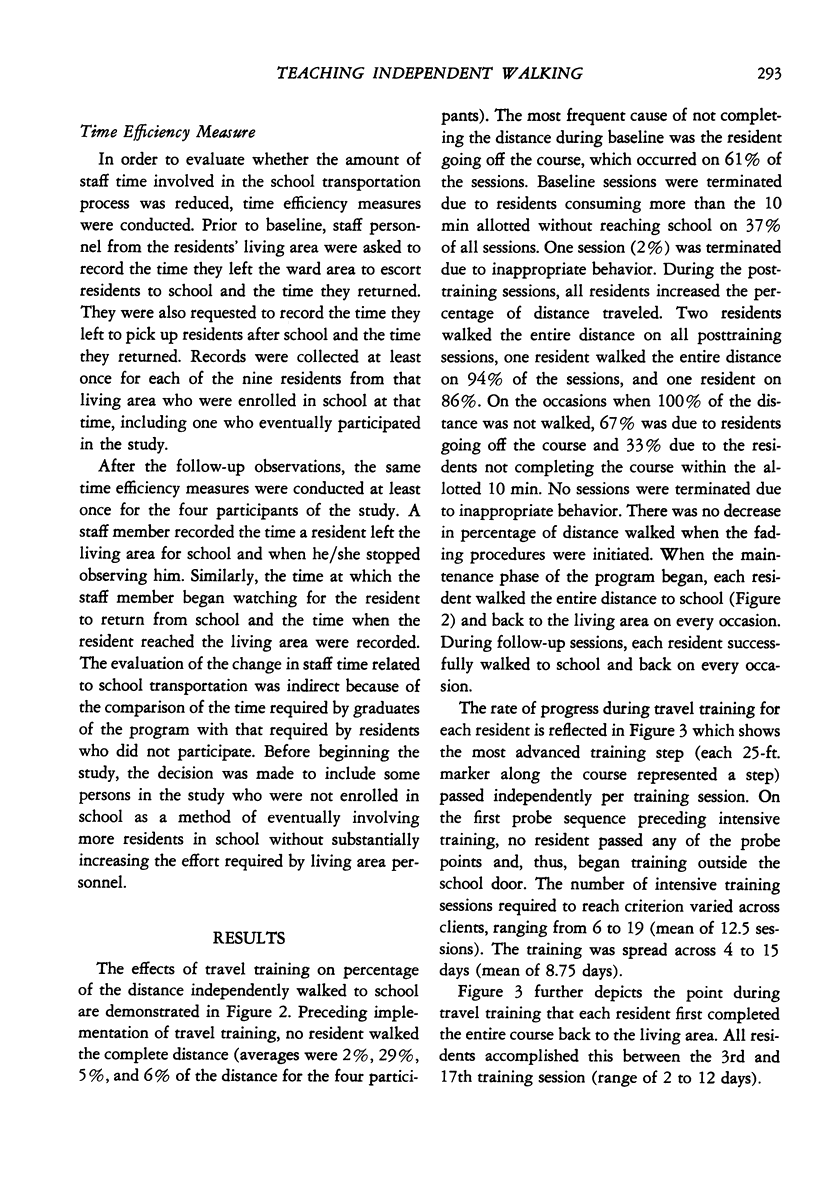
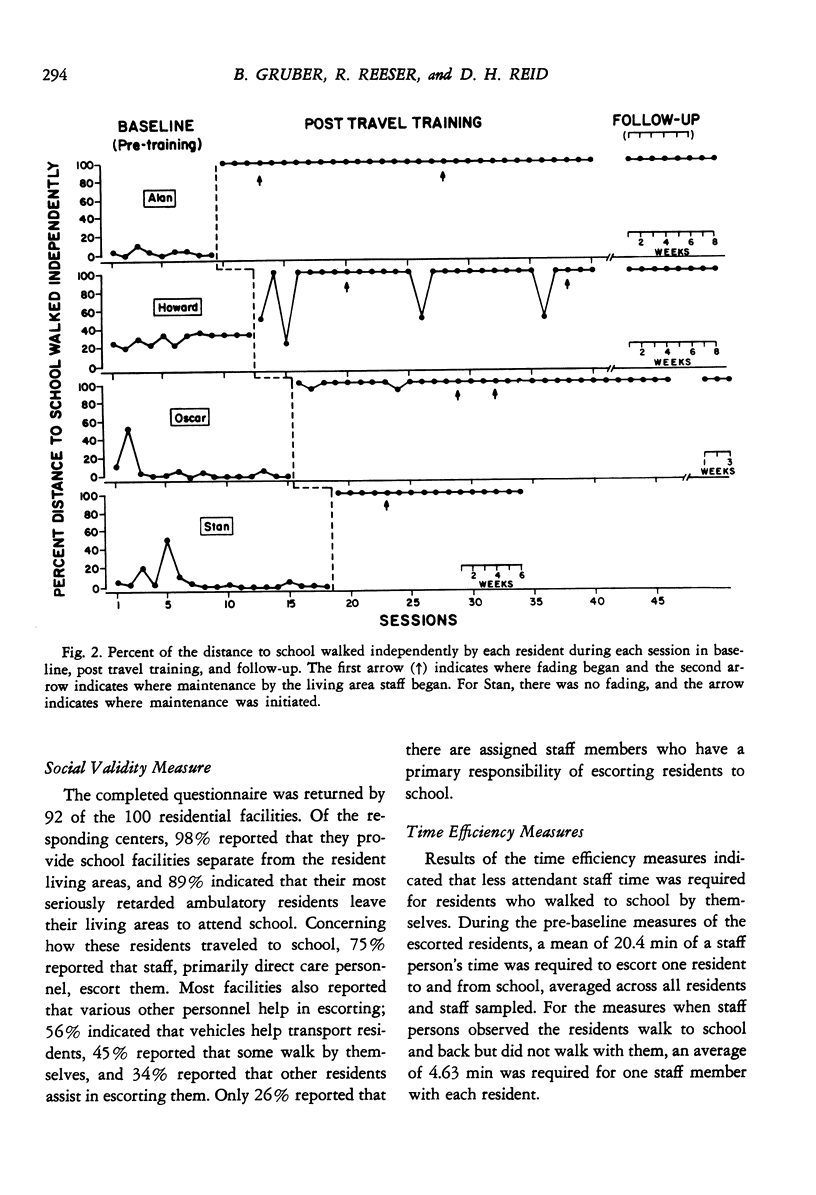
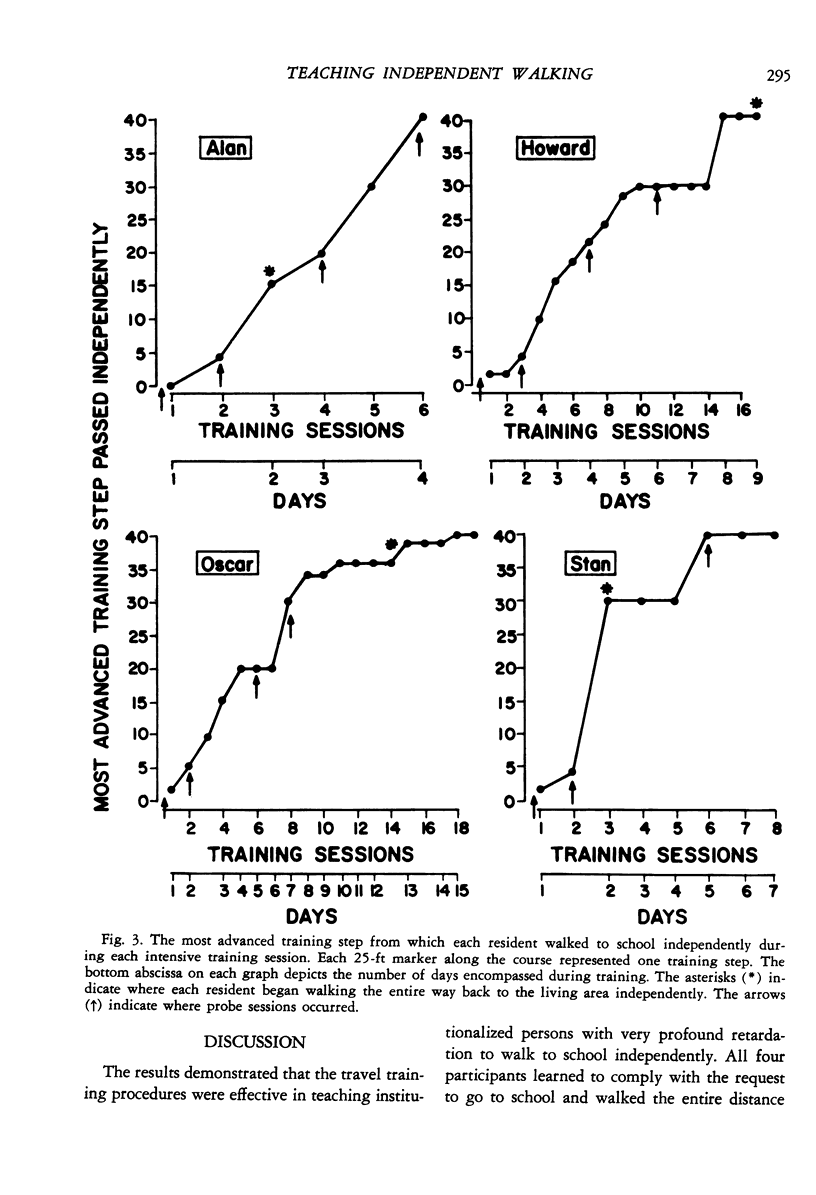
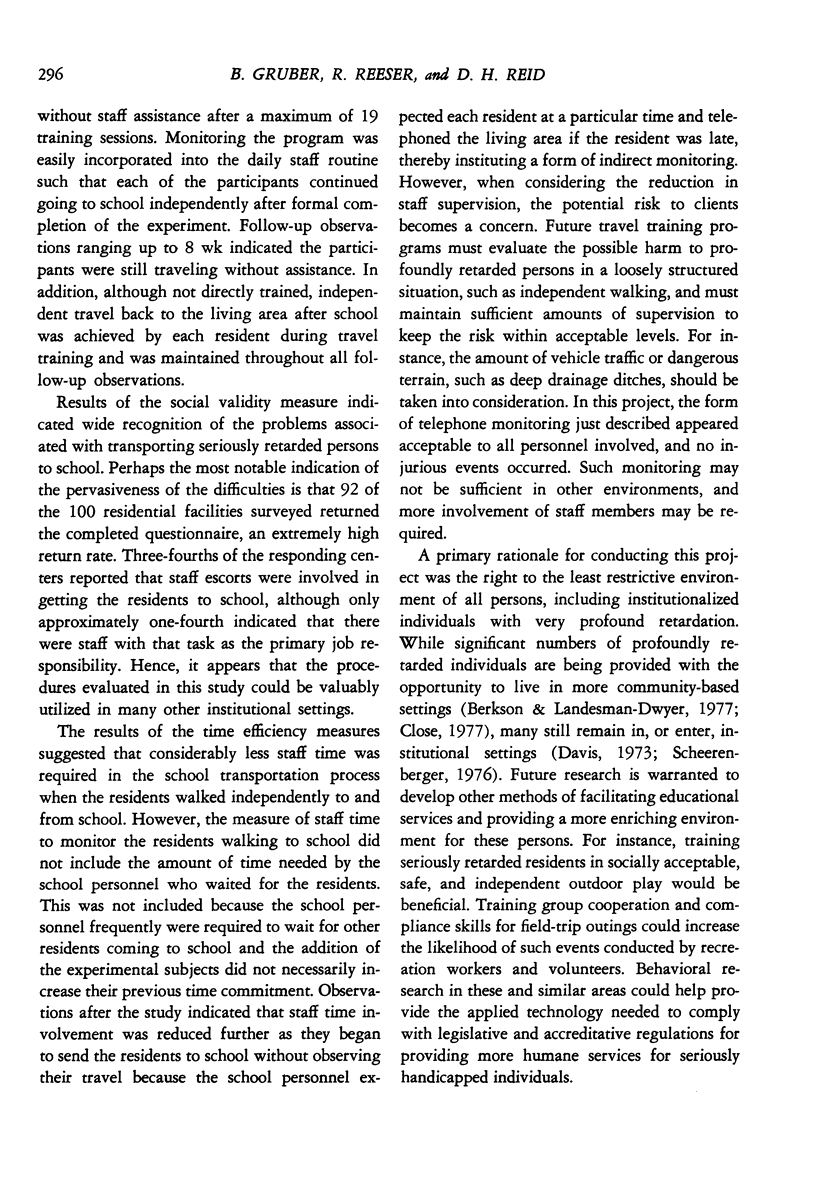
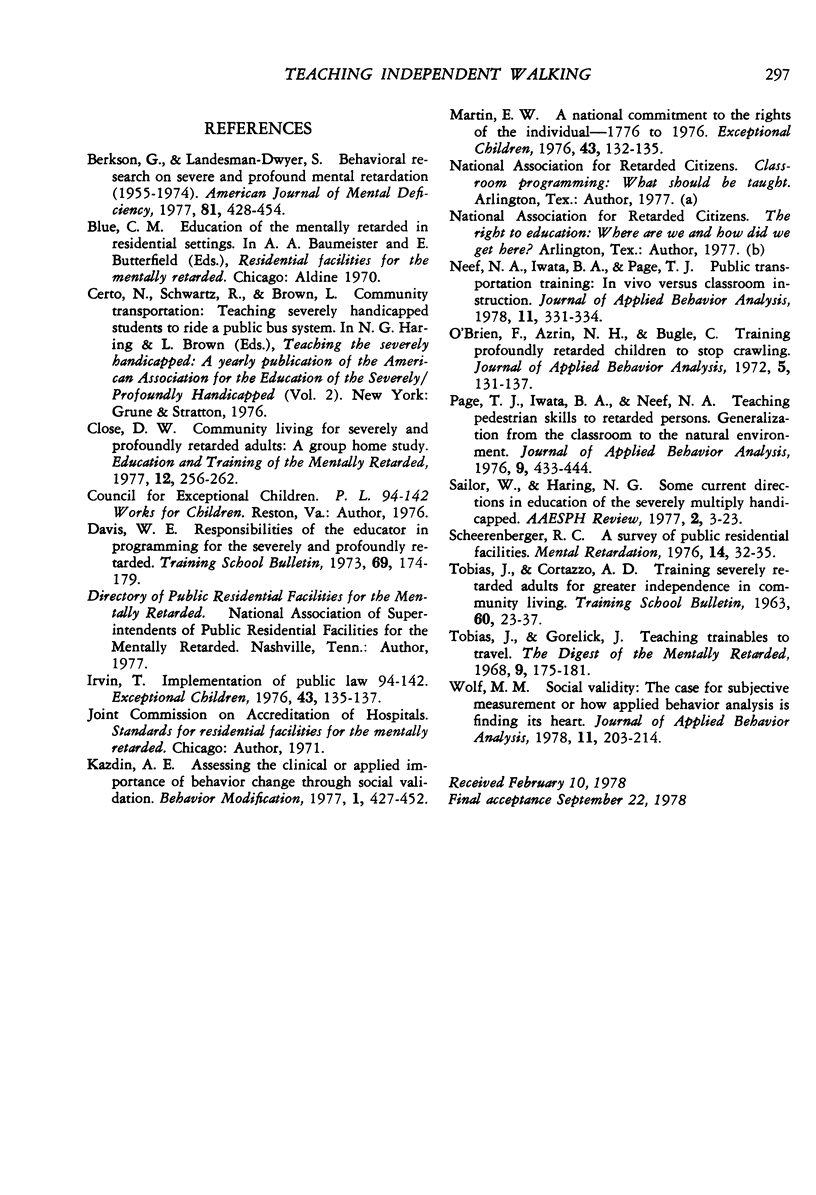
Selected References
These references are in PubMed. This may not be the complete list of references from this article.
- Berkson G., Landesman-Dwyer S. Behavioral research on severe and profound mental retardation (1955--1974). Am J Ment Defic. 1977 Mar;81(5):428–454. [PubMed] [Google Scholar]
- Irvin T. Implementation of Public Law 94-142. Except Child. 1976 Nov;43(3):135–137. doi: 10.1177/001440297604300304. [DOI] [PubMed] [Google Scholar]
- Neef N. A., Iwata B. A., Page T. J. Public transportation training: in vivo versus classroom instruction. J Appl Behav Anal. 1978 Fall;11(3):331–344. doi: 10.1901/jaba.1978.11-331. [DOI] [PMC free article] [PubMed] [Google Scholar]
- O'brien F., Azrin N. H., Bugle C. Training profoundly retarded children to stop crawling. J Appl Behav Anal. 1972 Summer;5(2):131–137. doi: 10.1901/jaba.1972.5-131. [DOI] [PMC free article] [PubMed] [Google Scholar]
- Page T. J., Iwata B. A., Neef N. A. Teaching pedestrian skills to retarded persons: generalization from the classroom to the natural environment. J Appl Behav Anal. 1976 WINTER;9(4):433–444. doi: 10.1901/jaba.1976.9-433. [DOI] [PMC free article] [PubMed] [Google Scholar]
- Scheerenberger R. C. A study of public residential facilities. Ment Retard. 1976 Feb;14(1):32–35. [PubMed] [Google Scholar]
- Wolf M. M. Social validity: the case for subjective measurement or how applied behavior analysis is finding its heart. J Appl Behav Anal. 1978 Summer;11(2):203–214. doi: 10.1901/jaba.1978.11-203. [DOI] [PMC free article] [PubMed] [Google Scholar]


